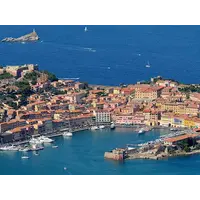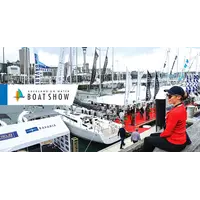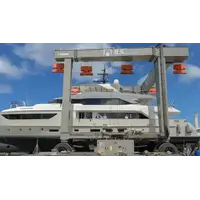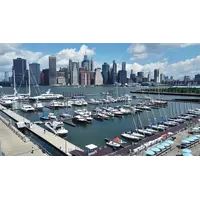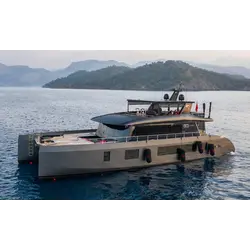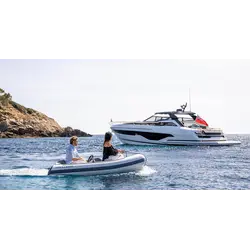Introduction
In a groundbreaking move towards a more sustainable future, Yamaha Motor Corporation, in collaboration with Roush and Regulator Marine, has unveiled the world's first hydrogen-powered outboard engine at the prestigious 2024 Miami International Boat Show. This innovative technology represents a significant leap forward in the quest for carbon neutrality within the marine industry.
Cutting-Edge Hydrogen-Powered Outboard Engine
The hydrogen-powered outboard engine developed by Yamaha is based on the company's flagship XTO outboard model, renowned for its power and performance. By harnessing proven hydrogen combustion technology from their land-based engines, Yamaha has created a cutting-edge propulsion system capable of delivering clean and efficient energy for recreational boats.
Technical Specifications and Performance
While specific output figures for the hydrogen version of the XTO outboard engine have not been released, it is expected to offer comparable performance to its gas-powered counterpart, which boasts ratings of 425-450 horsepower. This ensures that boaters can enjoy the same level of performance and reliability while significantly reducing their environmental footprint.
Collaboration for Success
The development of the hydrogen outboard engine has been made possible through collaboration with industry leaders Roush and Regulator Marine. Roush's expertise in hydrogen systems integration and research has been instrumental in overcoming technical challenges and optimizing the fuel system's performance. Meanwhile, Regulator Marine has played a crucial role in designing a vessel capable of accommodating the unique requirements of hydrogen propulsion.
Testing and Validation
Yamaha, Roush, and Regulator Marine plan to commence testing of the prototype boat equipped with the hydrogen outboard engine in the summer of 2024. These real-world trials will provide valuable insights into the hydrogen propulsion system's performance, efficiency, and reliability, paving the way for its commercialization and widespread adoption.
Yamaha's Commitment to Sustainability
Yamaha's ambitious sustainability goals align with its commitment to achieving carbon neutrality within the marine industry. With commitments to carbon neutrality in operations by 2035 and in products by 2050, Yamaha is actively pursuing multiple solutions to reduce greenhouse gas emissions and minimize the environmental impact of recreational boating activities.
Leading the Transition to a Greener Future
As a pioneer in hydrogen propulsion technology, Yamaha is leading by example and inspiring others to embrace sustainable alternatives. By fostering collaboration, driving innovation, and advocating for infrastructure development, Yamaha is laying the foundation for a cleaner, greener future in boating.
The Significance of the Miami International Boat Show Unveiling
The unveiling of the hydrogen-powered outboard engine at the Miami International Boat Show signifies a pivotal moment for the marine industry. As Yamaha paves the way for hydrogen propulsion, other stakeholders are encouraged to join the movement, fostering collaboration and innovation in pursuing greener boating solutions.
Challenges and Opportunities in Hydrogen Propulsion
While hydrogen propulsion presents numerous benefits in reducing carbon emissions and minimizing environmental impact, challenges need to be addressed. These include infrastructure development, hydrogen production and storage, and the cost-effectiveness of hydrogen-powered systems. However, Yamaha's pioneering efforts and collaborations with industry leaders demonstrate a commitment to overcome these challenges and unlock the full potential of hydrogen propulsion.
The Importance of Collaboration and Innovation
The development of the hydrogen-powered outboard engine is a testament to the power of collaboration and innovation. Through partnerships with Roush and Regulator Marine, Yamaha has been able to leverage the expertise of industry leaders and push the boundaries of what is possible in marine propulsion. This collaborative approach is essential in adopting sustainable technologies and shaping a more environmentally friendly future.
The Future of Hydrogen-powered Boating
As Yamaha continues to refine and test the hydrogen-powered outboard engine, the future of hydrogen propulsion in boating looks promising. The successful implementation of this technology has the potential to revolutionize the marine industry, offering boaters a clean, efficient, and sustainable alternative to traditional fossil fuel engines. With ongoing advancements and increasing support for hydrogen infrastructure, the possibilities for hydrogen-powered boating are limitless.
Conclusion
Yamaha's introduction of the world's first hydrogen-powered outboard engine represents a significant milestone in the quest for carbon neutrality within the marine industry. By harnessing the power of hydrogen, Yamaha is leading the transition to a greener future and inspiring others to embrace sustainable alternatives. Through collaboration, innovation, and a commitment to environmental stewardship, Yamaha is shaping a more sustainable and environmentally friendly boating industry. The unveiling of the hydrogen-powered outboard engine at the Miami International Boat Show marks a pivotal moment in marine propulsion technology, and the future looks bright for hydrogen-powered boating.


